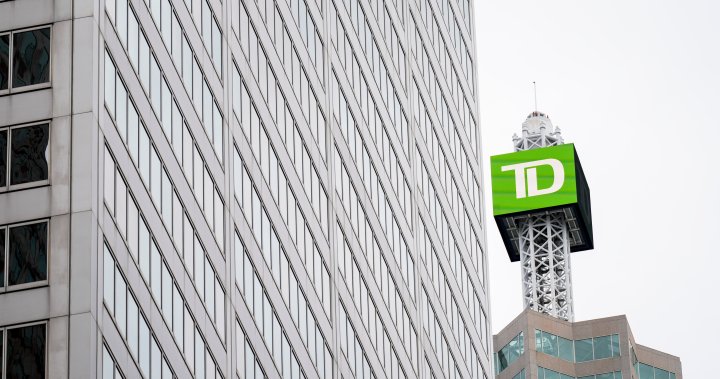Toronto-Dominion Bank’s Strategic Exit from Charles Schwab Stake
In a significant move, Toronto-Dominion Bank (TD) announced on Monday its decision to exit its 10.1% stake in the financial services giant Charles Schwab. This decision comes as part of a broader strategic review initiated by the Canadian lender following a landmark fine imposed by U.S. regulators. TD’s stake in Schwab consists of 184.7 million shares of common stock, valued at approximately $15.4 billion based on the most recent closing price. The announcement sent ripples through the market, with Schwab’s shares dropping 3.2% in premarket trading. This move underscores TD’s efforts to navigate a challenging financial landscape, particularly as it grapples with the fallout from a major regulatory probe and a hefty penalty.
TD’s Regulatory Woes and Strategic Reforms
The backdrop to TD’s decision to divest its Schwab stake is rooted in a series of regulatory challenges. In December, the bank warned of a difficult 2025, citing ongoing struggles with its anti-money laundering (AML) remediation program. This followed a U.S. regulatory investigation that led to TD pleading guilty in October to violating federal laws designed to prevent money laundering. The bank agreed to pay over $3 billion in penalties, marking one of the largest such settlements in U.S. history. The plea deal also imposed unusual restrictions, including an asset cap and other business limitations, reflecting the severity of the issues identified by authorities. These developments have prompted TD to undertake a comprehensive strategic review, focusing on capital allocation and operational efficiency.
Leadership Transition and Strategic Priorities
The announcement of TD’s exit from its Schwab investment coincides with a leadership transition at the bank. Raymond Chun, who took over as CEO on February 1, replacing Bharat Masrani more than two months earlier than planned, emphasized the strategic rationale behind the decision. Chun stated that the move is part of TD’s broader evaluation of capital allocation, aimed at optimizing resources for greater financial flexibility and growth. The bank plans to utilize $8 billion (or approximately $5.58 billion USD) of the proceeds from the sale to repurchase shares, a move expected to bolster shareholder value. The remaining funds will be reinvested in TD’s core businesses to drive performance improvements and accelerate organic growth.
Financial Implications and Future Outlook
TD’s decision to exit its Schwab stake also highlights the bank’s commitment to prudent capital management and infrastructure strengthening. The sale of its 10.1% stake, acquired as part of Schwab’s $26 billion acquisition of TD Ameritrade in 2020, marks a significant shift in TD’s investment strategy. Schwab, in a separate statement, revealed that it has agreed to repurchase $1.5 billion worth of shares from TD in a private transaction. This deal not only streamlines TD’s portfolio but also provides Schwab with an opportunity to consolidate its shareholder base. Moving forward, TD aims to focus on its core banking operations, leveraging the proceeds from the sale to enhance operational efficiency and drive long-term growth.
Market Reactions and Industry Implications
The announcement of TD’s exit from its Schwab stake has drawn mixed reactions from market analysts. While some view the move as a strategic step to strengthen TD’s financial position, others have raised concerns about the potential impact on Schwab’s valuation and investor sentiment. The 3.2% drop in Schwab’s shares during premarket trading reflects the market’s immediate response to the news. However, Schwab’s decision to repurchase a portion of its shares from TD could help mitigate any longer-term effects on its stock price. For TD, the sale represents a crucial step in its efforts to address regulatory challenges and refocus on its core business priorities.
Conclusion: Navigating a Challenging Landscape
In summary, TD’s decision to exit its stake in Charles Schwab is a pivotal moment in the bank’s strategic realignment. Faced with regulatory scrutiny, a challenging financial outlook, and the need for operational reforms, TD is taking proactive steps to strengthen its position. The sale of its Schwab stake not only provides much-needed capital for share buybacks and reinvestment but also underscores the bank’s commitment to prudent capital management and long-term growth. As TD navigates this complex landscape, the success of its strategic initiatives will be closely watched by investors, regulators, and industry observers alike.












